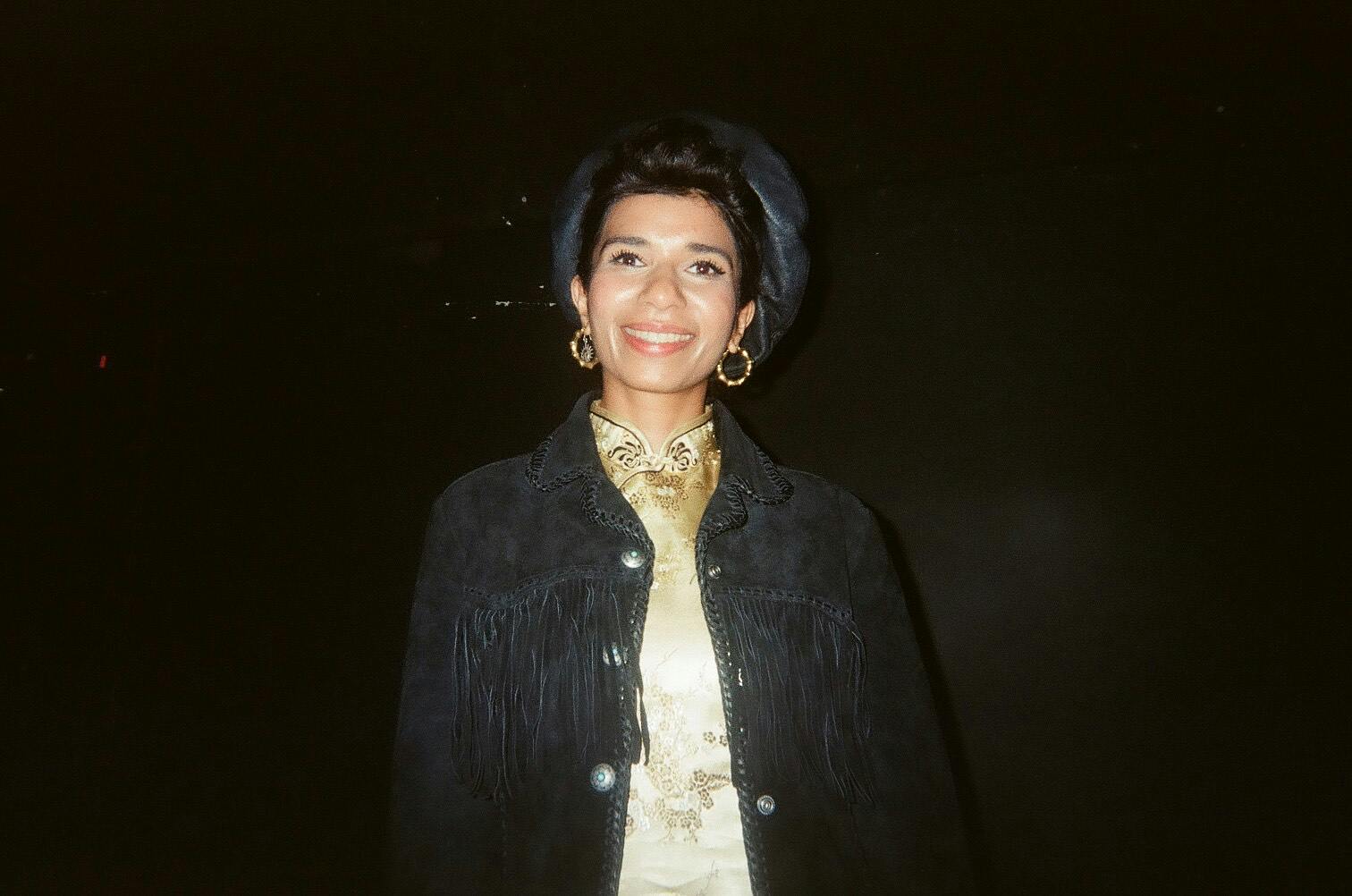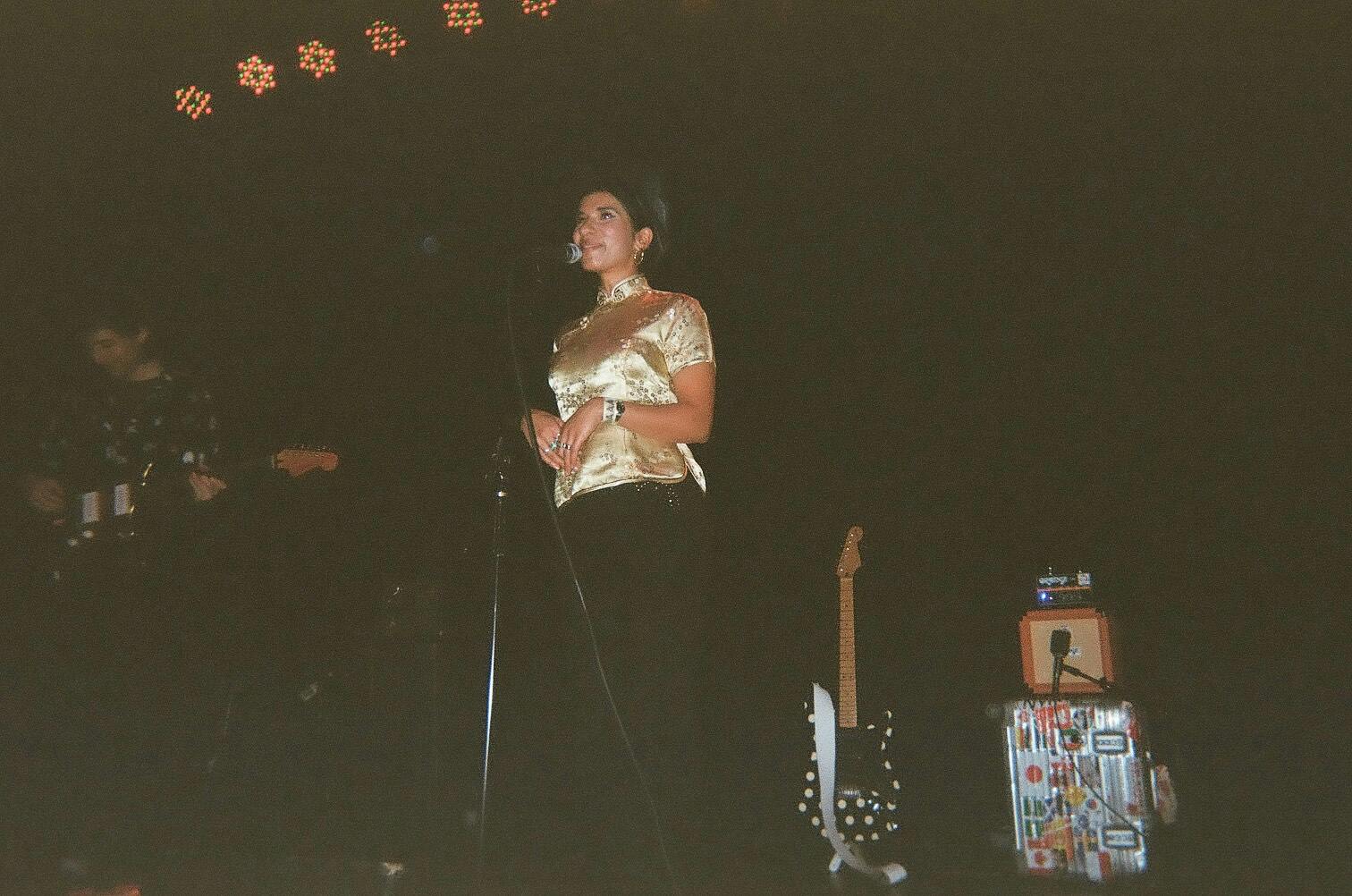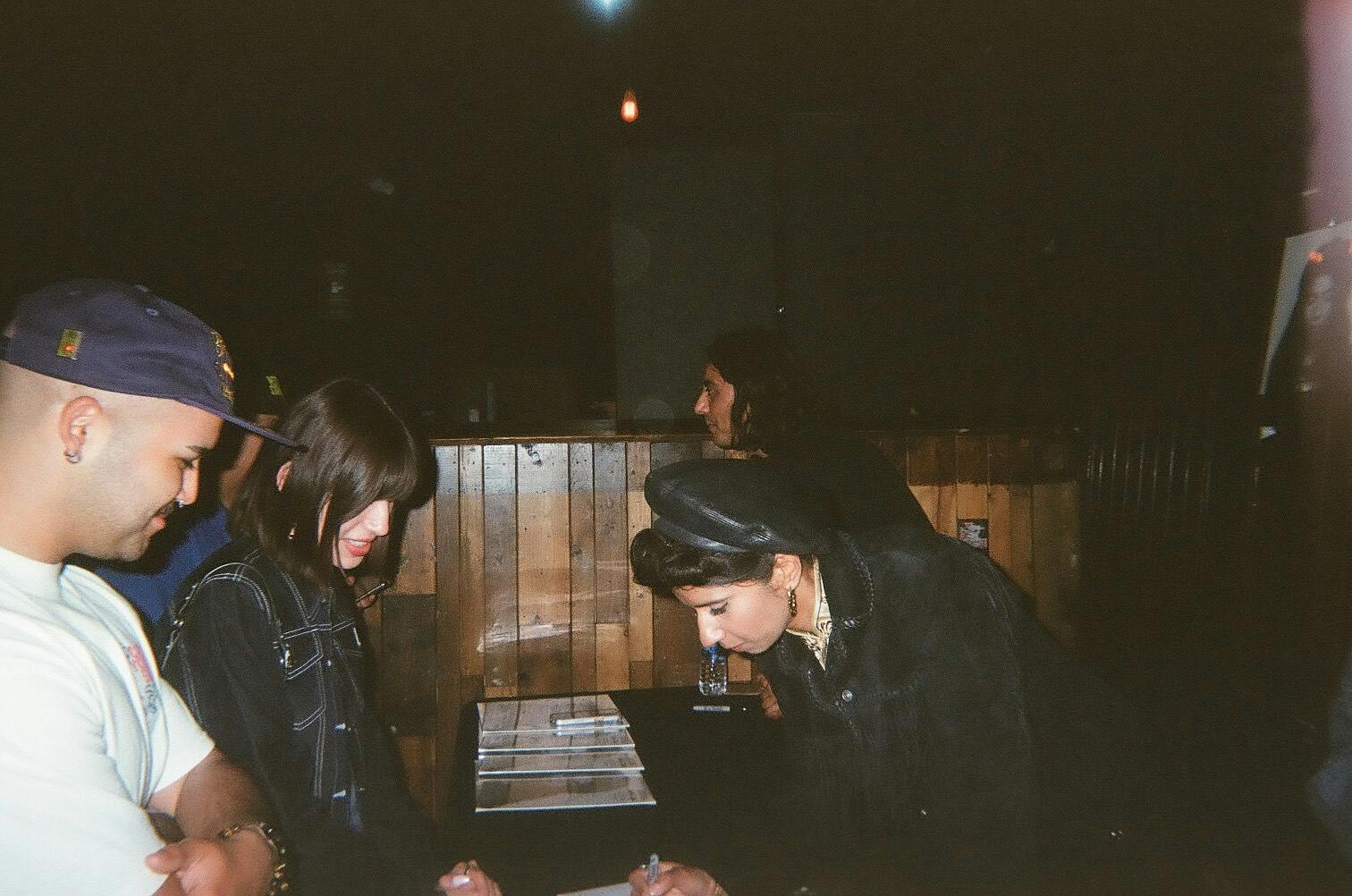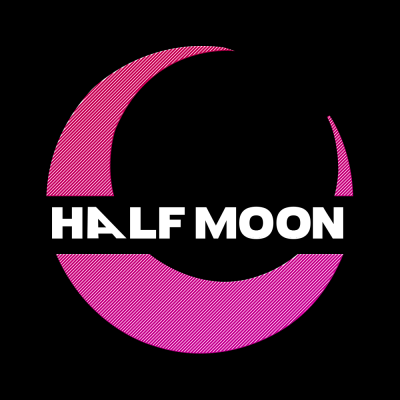
Interview ‣ Nabihah Iqbal
Pink Noise: Nabihah Iqbal
During her visit in LA Nabihah Iqbal spoke with us on the importance of authenticity and community.

Tania Rangel
Writer
Updated
I can’t recall the last time I saw LA dance like no one was watching. Multidisciplinary Pakistani London based artist Nabihah Iqbal sings along and sways side to side as she spins a DJ set. The crowd becomes a mirror of her infectious energy.
Lately, it has been hard to resonate with music and most importantly artists. As the months go by and we watch genocides on our phone screens, there has come a time where we are now holding artists accountable for the complicity that comes with silence.
Iqbal took the stage at the Constellation Room the following week performing her latest Dreamer album. Iqbal greeted me wearing her staple black beret and thanked me for coming out to her DJ set at Zebulon Cafe the weekend prior.
Throughout her show she interacted with her audience quite a lot and they were very responsive. She shared the meaning behind her songs and how she reads really depressing books. Iqbal is quite a conversationally funny individual. She mentioned how she really wanted a cowboy hat since it was her first time staying in the U.S. but was confused with the crazy prices. “They must be really rich cowboys,” she said.
Her music is dreamy yet haunting, but it seems as if the audience really finds appreciation and comfort in her vulnerability. Something about her overall welcoming presence makes people feel comfortable in any setting.
“I feel like the reason why so many people have been coming to the shows all around the world, and coming to tell me how they feel about the music is because they can feel that emotion, like the kind of authentic real emotion in the music,” Iqbal said.“That’s the thing that travels, and there's no formula for it.”

What drew me to Iqbal was her comforting synth filled sound blended with activism. With lots of layers, big pad sounds, and textures, she is able to bring out buried emotions that make you travel to a nostalgic place. Before doing music full-time, she worked in human rights law with a focus on South African history. But in her pursuit of music, she has not abandoned her truth one bit.
Her activism goes beyond wearing a pin. She consistently shows her support for Palestine, whether it be at a protest, on Instagram, or at a show. Just last month she pulled out of SXSW in solidarity with Palestine after becoming aware of the BDS boycott.
Art is supposed to be a reflection of self and that seems to be true for Iqbal. Community has always been important to her. She believes that it is vital to share space and ideas and hopes she is able to encourage others to do so. Before doing music full time, she threw parties in London with friends where she would invite people to perform. Now, she throws club nights and music events in London under the name “Glory Sound.”
“I feel like community is really important with any kind of art… You know, in music especially. Music is the most kind of social art form, right?” she said. “Everything that you do needs to feel like it's coming from you and it's authentic, whether it's the music that you're making, or something else that you're saying, the position that you're taking up, whatever it is… If it feels good to you, then just stick with it. Sometimes it can feel difficult, but it still feels like the right thing to do.”
Iqbal recently released an EP of remixes for her most recent album DREAMER titled DREAMER (Remixes) where she asked a collective of South Asian music friends to put a twist to her songs. “I didn't give anyone any pointers or anything. I just said just do what you want,”Iqbal said.“They all turned out really amazing and different.”
Recently on her NTS show, Iqbal had special guest AhmadSHK, who she met on her trip to Lebanon last September. Titling the episode, “Reminiscing our Land,” he played two hours of chunes from Syria and neighboring regions. Ahmad fled Syria during the war and dedicates most of his time to digging for records mainly from Syria as a form of resistance.
When Ahmed proposed the idea of hosting the show she had to say yes as she believes keeping culture alive is very important.,
“Everything was lost. All the record shops were destroyed, libraries destroyed, everything destroyed,” Iqbal said. “There's no media outlets… the radio stations, whatever it was, it's just gone. And those people are either dead, or refugees somewhere else.”
While making space is important to Iqbal, she shared how criticism in the alternative electronic scene and music scene in general as a WOC is inevitable. She expressed that “When you're in basically a Western white society, but you don't look like that… inherently you just being present is already like a statement… There’s no way that you can get away with that.”
However, she doesn't let that get in the way. “I think you have to be quite a strong person. And maybe it's not something that you can learn overnight,” Iqbal said. “There will always be things which you don't want to hear, or there'll be things that don't go your way, that's just part of it. it's cliche, because people say it all the time, but you really have to just believe in yourself.”

